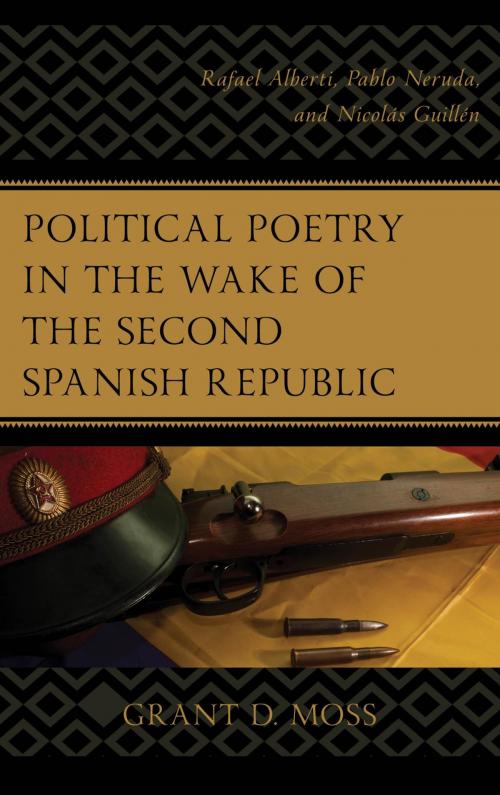Political Poetry in the Wake of the Second Spanish Republic
Rafael Alberti, Pablo Neruda, and Nicolás Guillén
Fiction & Literature, Literary Theory & Criticism, European, Spanish & Portuguese, Poetry History & Criticism| Author: | Grant D. Moss | ISBN: | 9781498547710 |
| Publisher: | Lexington Books | Publication: | December 6, 2017 |
| Imprint: | Lexington Books | Language: | English |
| Author: | Grant D. Moss |
| ISBN: | 9781498547710 |
| Publisher: | Lexington Books |
| Publication: | December 6, 2017 |
| Imprint: | Lexington Books |
| Language: | English |
From notions of art for art’s sake to committed poetry, it may seem that poets cannot achieve reconciliation between the politics and poetry. However, among committed Communist poets of the 20th century of the Spanish-speaking world, three poets stand out as examples of a search to bring together their political and their poetic commitments: Rafael Alberti, Nicolás Guillén, and Pablo Neruda. Political Poetry in the Wake of the Second Spanish Republic analyzes the simultaneous development of politics and poetics in these three Spanish-language poets as it was nurtured by the Second Spanish Republic (1931-1939). Beginning in these years, Alberti, Guillén, and Neruda strove to tackle the challenge of committing to their own independent poetic projects and to their politics at the same time. Later, these three poets maintained their Communist Party affiliation until their deaths and produced collection after collection of quality poetry. Despite the differences in their overall poetic trajectories and projects, the ability to maneuver between politics and poetry without sacrificing either one is common among them. Because of their unique experiences during the time of the Second Spanish Republic in Spain, each author explicitly denounced the injustices that the opposing Franquist forces had committed against the Republic. After the fall of the Republic in 1939, Alberti, Guillén, and Neruda continued to intertwine their politics with their poems only in a less obvious manner. Therefore, each could solidify his position within the poetic canon while at the same time each could maintain his position as a committed (or at least card-carrying) Communist.
From notions of art for art’s sake to committed poetry, it may seem that poets cannot achieve reconciliation between the politics and poetry. However, among committed Communist poets of the 20th century of the Spanish-speaking world, three poets stand out as examples of a search to bring together their political and their poetic commitments: Rafael Alberti, Nicolás Guillén, and Pablo Neruda. Political Poetry in the Wake of the Second Spanish Republic analyzes the simultaneous development of politics and poetics in these three Spanish-language poets as it was nurtured by the Second Spanish Republic (1931-1939). Beginning in these years, Alberti, Guillén, and Neruda strove to tackle the challenge of committing to their own independent poetic projects and to their politics at the same time. Later, these three poets maintained their Communist Party affiliation until their deaths and produced collection after collection of quality poetry. Despite the differences in their overall poetic trajectories and projects, the ability to maneuver between politics and poetry without sacrificing either one is common among them. Because of their unique experiences during the time of the Second Spanish Republic in Spain, each author explicitly denounced the injustices that the opposing Franquist forces had committed against the Republic. After the fall of the Republic in 1939, Alberti, Guillén, and Neruda continued to intertwine their politics with their poems only in a less obvious manner. Therefore, each could solidify his position within the poetic canon while at the same time each could maintain his position as a committed (or at least card-carrying) Communist.















